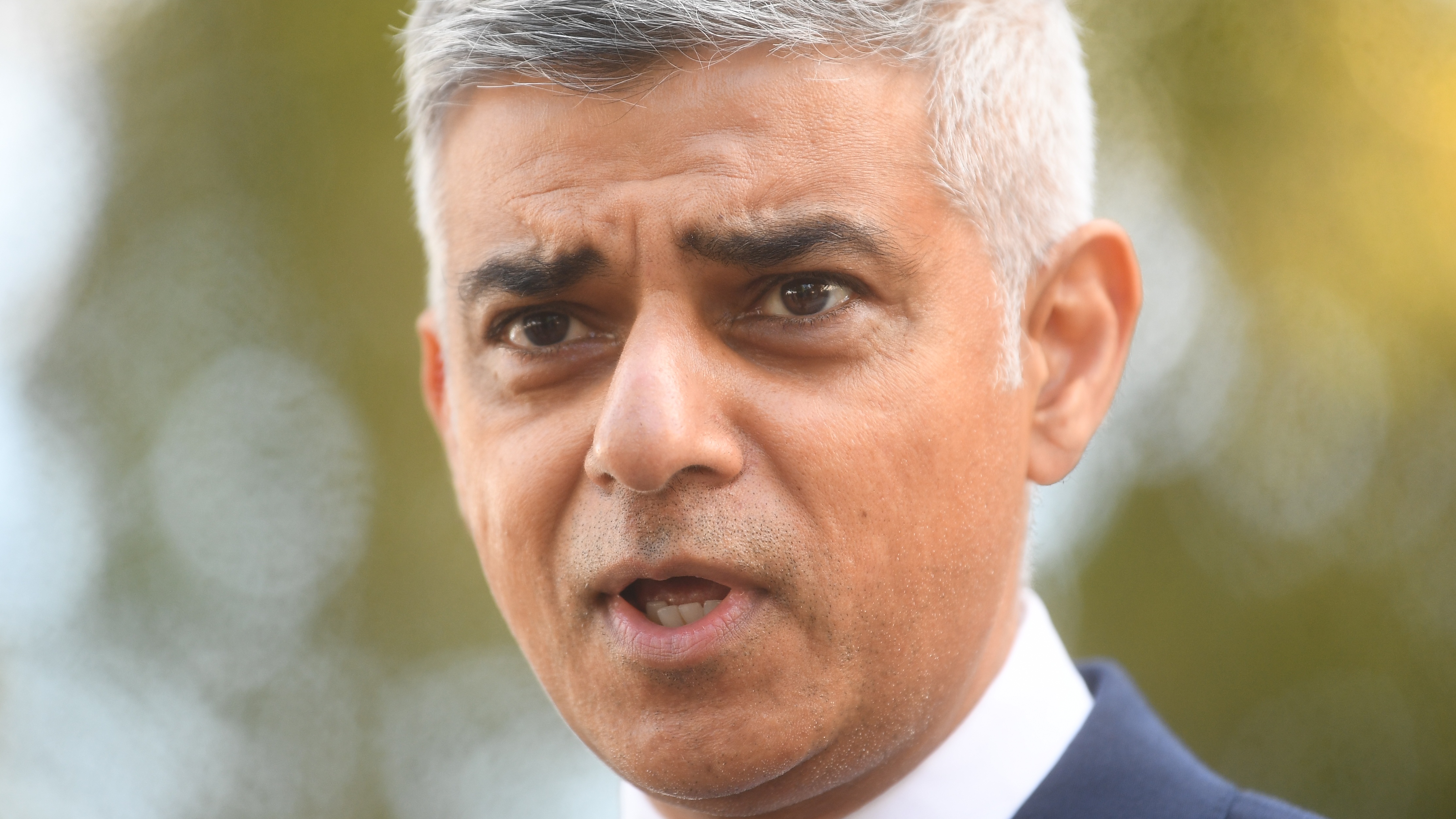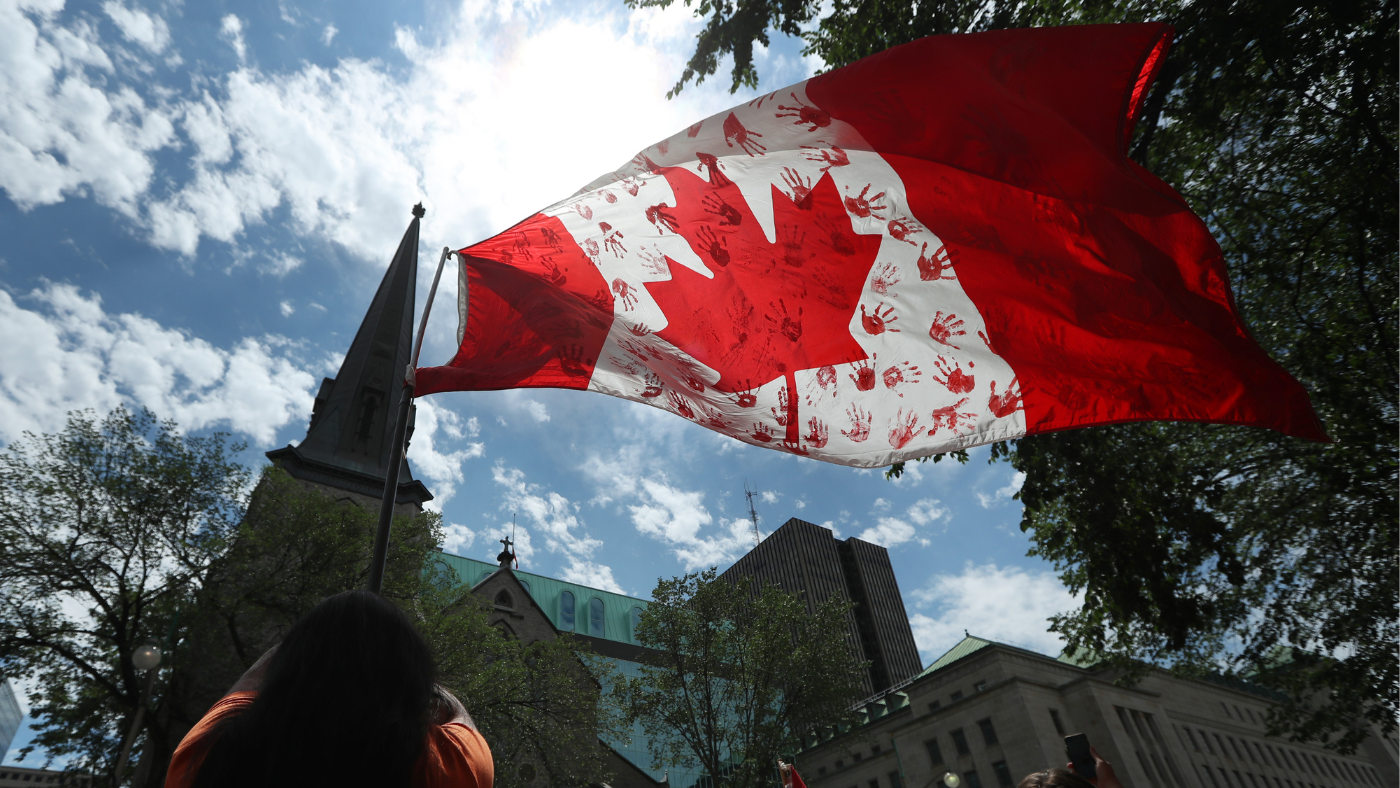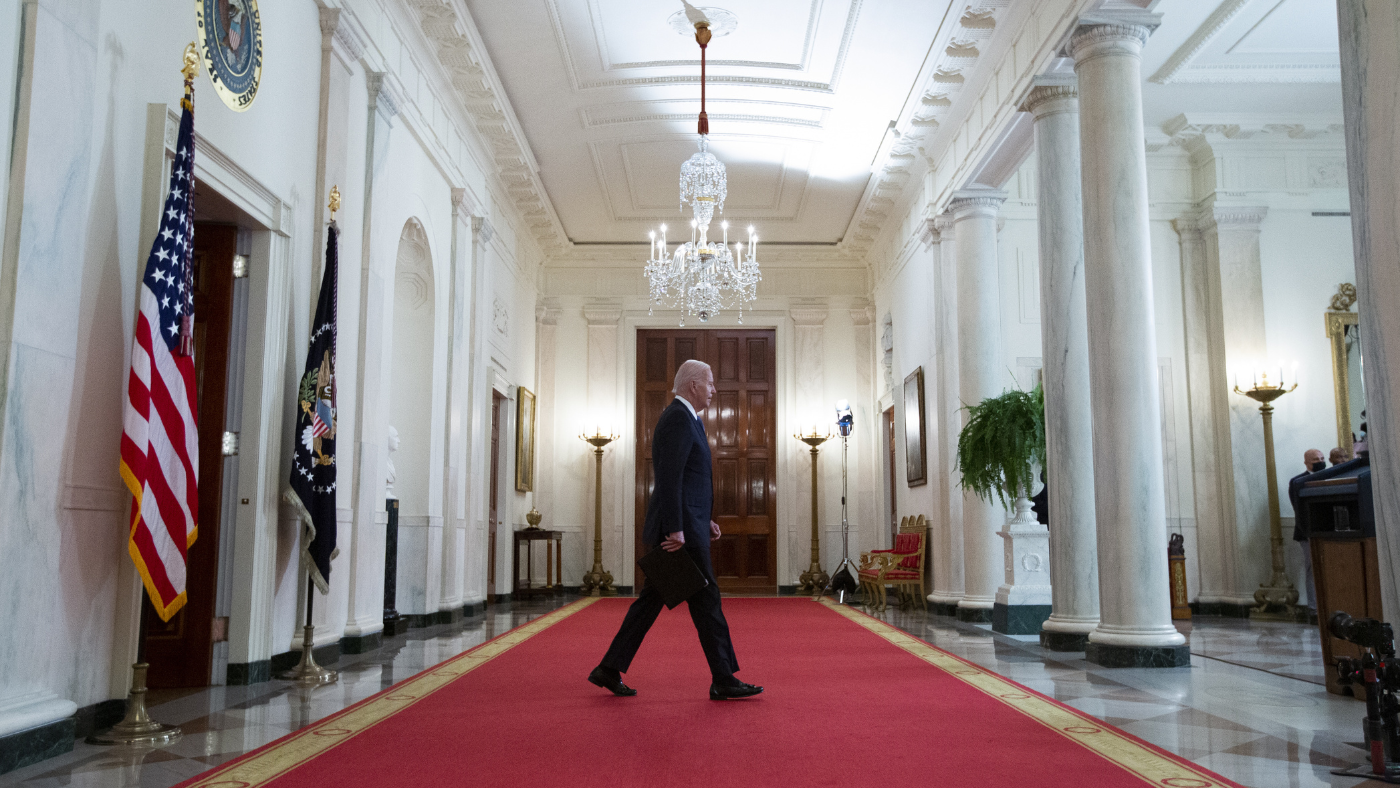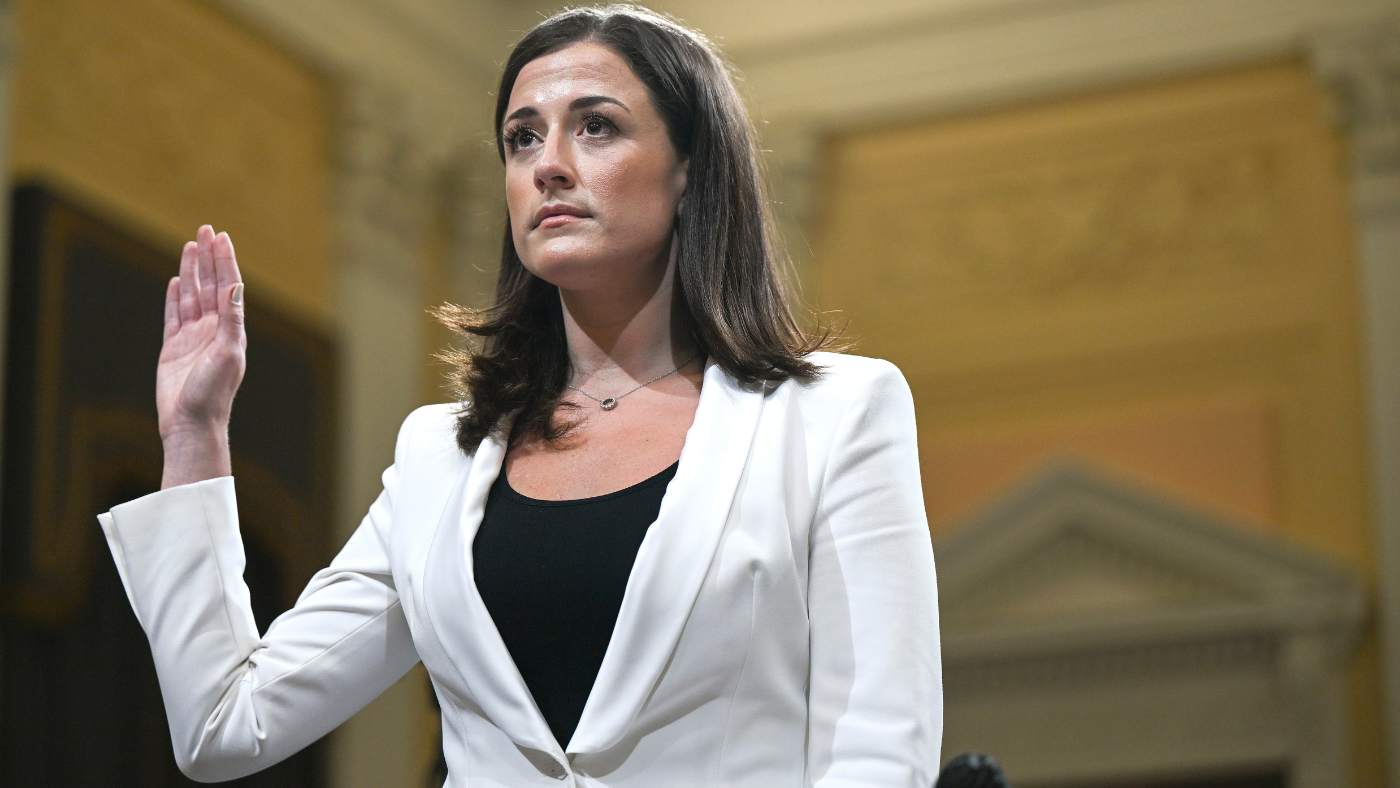‘The Tories have abandoned London’
Your digest of analysis and commentary from the British and international press

- 1. The Tories have abandoned Sadiq Khan’s London to a doom-spiral of permanent decline
- 2. Transparency is vital to keep our politicians in line
- 3. How worried should we be about the UK’s Covid-19 vaccine supply problems?
- 4. Unopposed: why is Keir Starmer making life so easy for the PM?
- 5. We may have new rules on misogyny – but little has changed since #MeToo
A free daily email with the biggest news stories of the day – and the best features from TheWeek.com
You are now subscribed
Your newsletter sign-up was successful
1. The Tories have abandoned Sadiq Khan’s London to a doom-spiral of permanent decline
Allister Heath in The Telegraph
on Labour’s backyard
“If you are a Tory voter in London, tough luck,” writes Allister Heath in The Telegraph. “You now live in a one party city-state, controlled forever more by… Labour.” One in three Londoners voted Tory at the general election, which is “low but hardly trivial”. So why have the Tories “given up” on the mayoral election? “Many Tories believe that they must be seen to be anti-London, with losing the capital a cheap investment to grab votes elsewhere”, Heath suggests. “But in abandoning Londoners to long-term decline, while simultaneously and mindlessly embracing Left-wing urbanism, it is betraying not just its electorate but also the country’s long-term interests.”
The Week
Escape your echo chamber. Get the facts behind the news, plus analysis from multiple perspectives.

Sign up for The Week's Free Newsletters
From our morning news briefing to a weekly Good News Newsletter, get the best of The Week delivered directly to your inbox.
From our morning news briefing to a weekly Good News Newsletter, get the best of The Week delivered directly to your inbox.
2. Transparency is vital to keep our politicians in line
Andrew Ellson in The Times
on clean politics
“Light is said to be the best disinfectant,” writes Andrew Ellson in The Times. “Yet if you try to shine a torch on the practices of either central or local government their first instinct these days is to try to turn the power off.” Councils have become ever more reluctant in recent years to answer freedom of information requests, with demands “increasingly turned down for a variety of questionable reasons”. “Let’s not forget,” Ellson adds, “that local authorities have borrowed £6.6 billion since 2016 to buy shopping centres and office blocks, which are now plummeting in value… Perhaps if councils had been more afraid of proper scrutiny they might have been more cautious about such obvious gambles.”
A free daily email with the biggest news stories of the day – and the best features from TheWeek.com
3. How worried should we be about the UK’s Covid-19 vaccine supply problems?
Ailbhe Rea in the New Statesman
on jab shortages
“There is a distinct note of panic to some news coverage on the vaccine roll-out this morning,” says Ailbhe Rea in the New Statesman. Next month, there will be a “significant reduction” in the weekly supply of vaccinations available. But the “government line”, that we are still on track to hit our targets, is a “valid” assessment, Rea says. However, it is a reminder that vaccine delivery is a “lumpy” process. “Just because there is no major roadblock yet, we shouldn’t rule out the possibility of further setbacks in the months ahead.”
4. Unopposed: why is Keir Starmer making life so easy for the PM?
James Forsyth in The Spectator
on soft opposition
“If there is one thing worse than being talked about, it is not being talked about – and this is the fate beginning to befall Keir Starmer,” writes James Forsyth in The Spectator. “He is at risk of becoming an irrelevance,” he says. “Labour’s approach means little opposition – which means a lack of proper scrutiny,” says Forsyth. “As normality begins to return, it is time for proper parliamentary politics again.”
5. We may have new rules on misogyny – but little has changed since #MeToo
Cathy Newman in The Independent
on tragic inaction
Four years on from 2017’s #MeToo movement “little has changed”, writes Cathy Newman in The Independent. “Then, as now, there was an extraordinary solidarity among women disclosing their own experiences of sexual abuse and harassment, after the Harvey Weinstein story broke.” While men were held to account – including Weinstein – “the profound cultural change many activists dreamed of remained elusive”, she adds. “If the culture had really changed, the government would have heeded calls for action long before the tragedy which prompted the fire and fury of the last week.”
-
 The ‘ravenous’ demand for Cornish minerals
The ‘ravenous’ demand for Cornish mineralsUnder the Radar Growing need for critical minerals to power tech has intensified ‘appetite’ for lithium, which could be a ‘huge boon’ for local economy
-
 Why are election experts taking Trump’s midterm threats seriously?
Why are election experts taking Trump’s midterm threats seriously?IN THE SPOTLIGHT As the president muses about polling place deployments and a centralized electoral system aimed at one-party control, lawmakers are taking this administration at its word
-
 ‘Restaurateurs have become millionaires’
‘Restaurateurs have become millionaires’Instant Opinion Opinion, comment and editorials of the day
-
 Triangle-headed aliens touched Goldie Hawn
Triangle-headed aliens touched Goldie HawnTall Tales And other stories from the stranger side of life
-
 ‘The UK’s malaise will not end with the Prime Minister’s exit’
‘The UK’s malaise will not end with the Prime Minister’s exit’Instant Opinion Your digest of analysis from the British and international press
-
 ‘Police tactics are not getting worse, they are simply being filmed’
‘Police tactics are not getting worse, they are simply being filmed’Instant Opinion Your digest of analysis from the British and international press
-
 ‘G7 leaders missed a golden opportunity’
‘G7 leaders missed a golden opportunity’Instant Opinion Your digest of analysis from the British and international press
-
 ‘It takes some soul searching to celebrate Canada Day’
‘It takes some soul searching to celebrate Canada Day’Instant Opinion Your digest of analysis from the British and international press
-
 ‘Breakthrough on abortion rights could be there if Biden reaches for it’
‘Breakthrough on abortion rights could be there if Biden reaches for it’Instant Opinion Your digest of analysis from the British and international press
-
 ‘If only Mark Meadows had even half Cassidy Hutchinson’s courage’
‘If only Mark Meadows had even half Cassidy Hutchinson’s courage’Instant Opinion Your digest of analysis from the British and international press
-
 ‘Boris Johnson measures success in biceps rather than brain power’
‘Boris Johnson measures success in biceps rather than brain power’Instant Opinion Your digest of analysis from the British and international press